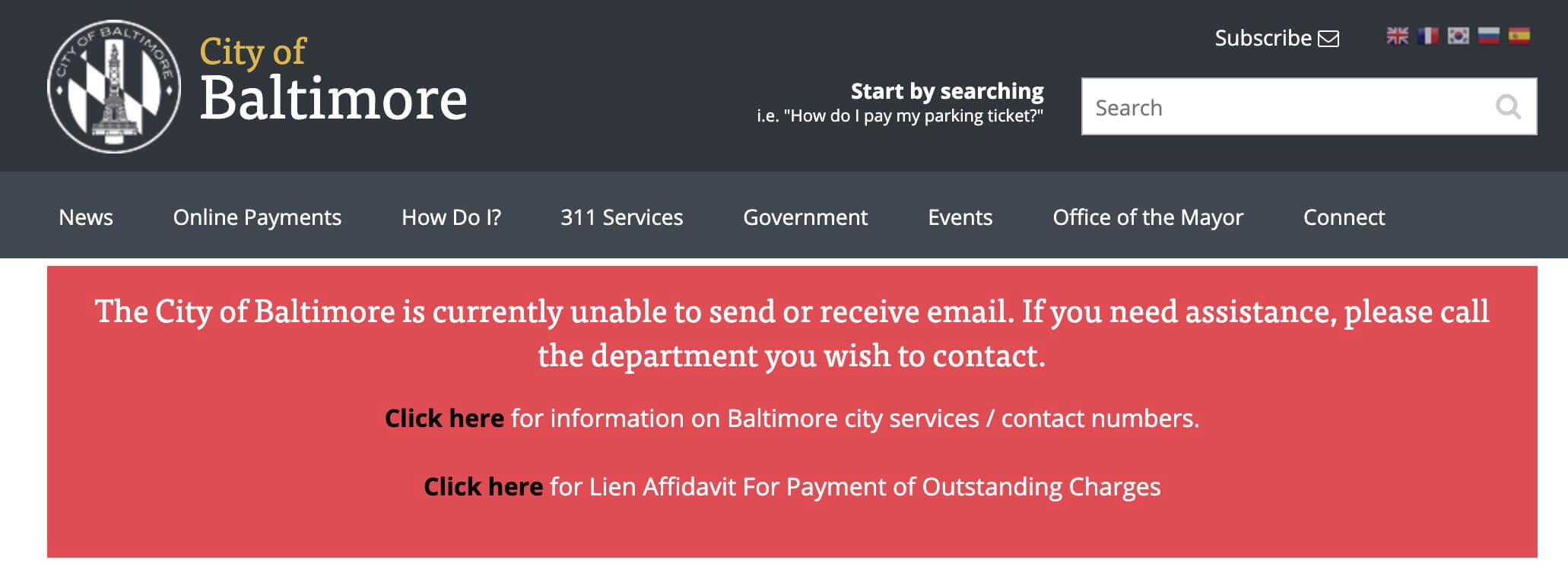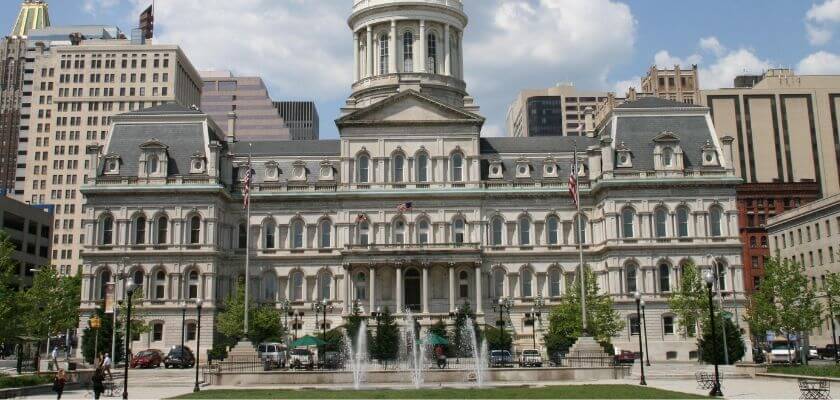On May 7th, hackers infected Baltimore city government computers with the ‘Robbinhood’ ransomware.
It is reported that nearly 10,000 computers were infected with the virus and the hackers have demanded a ransom of 13 bitcoins to set the computers free. They claimed that they shall raise the price of the ransom every single day four days from the date of the attack and that all the files will be deleted post ten days from the date of the attack. As of now, Baltimore hasn’t paid the ransom yet and the city’s payment services and email systems are still found offline.
“We won’t talk more, all we know is MONEY! Hurry up! Tik Tak, Tik Tak, Tik Tak!” read the ransom note.
Two weeks have passed since the ransomware attack took place and the Baltimore citizens are currently unable to access many of the city’s services such as email systems and payment services.
The Department of Public Works, the Department of Transportation and the Police Department were found having issues with the email and phone systems.
According to WSJ, the Baltimore Health Department’s epidemiologists aren’t able to alert citizens about certain drug overdoses as they cannot access the network that enables them to do so.
It is reported vital emergency systems such as 911 and 311 have remained functional through phone calls. However, as the ransomware froze the system used for executing home sales, Baltimore’s local market was hurt. The city’s now implementing a manual workaround to battle the losses.

The Robbinhood ransomware is said to implement a form of encryption known as ‘file-locking’ through which hackers hold the files hostage, reports Baltimore Sun. According to cyber-security experts, practices such as regular file backups and using a VPN will help prevent RobbinHood ransomware attacks.
“All of our agencies are working together, around the clock, to restore connectivity and to minimize any inconveniences to the general public. My administration worked closely with industry experts and developed a workaround that will allow real estate transactions to continue,” said Bernard Young, Mayor of Baltimore city in an official report issued on the city’s website.
It is surprising to note that government systems are not following security measures such as timely backups and other cybersecurity measures to prevent such ransomware attacks.






















